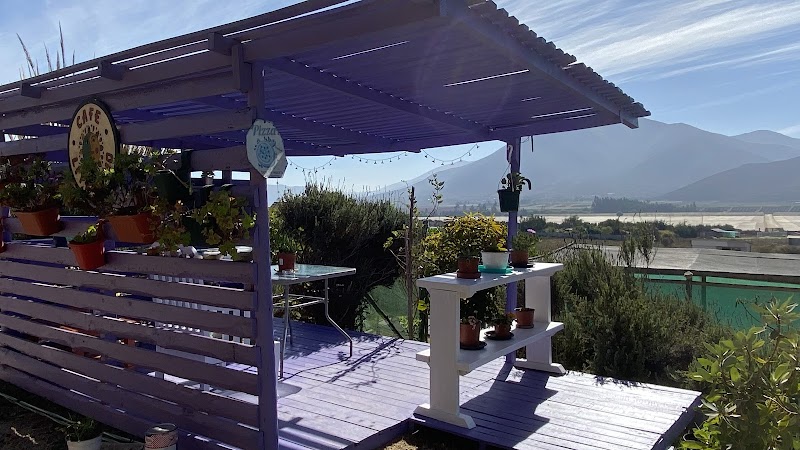
Experience the Vibrant Festival of La Serena in Coquimbo
The Festival of La Serena lights up Coquimbo’s coastal city with music, crafts, and regional cuisine that bring Chilean culture to life. Perfectly timed with mild spring weather, the celebration invites both cultural explorers and nature lovers to immerse themselves in a lively yet manageable adventure.
Wear Sturdy, Comfortable Shoes
The festival areas include cobblestone streets and sandy patches; proper footwear helps maintain good footing through varied terrain.
Stay Hydrated Throughout the Day
La Serena’s dry air can dehydrate quickly, especially while exploring markets and outdoor performances—carry water and refill often.
Plan Your Schedule Around Main Events
Popular concerts and dance shows fill up fast; arriving early ensures a good viewing spot and lets you experience the authentic atmosphere.
Use Sunscreen and Light Layers
The coastal sun can be intense during the day while evenings turn cooler; dressing in layers avoids temperature discomfort.
Experience the Vibrant Festival of La Serena in Coquimbo
The Festival of La Serena pulses through the coastal town of La Serena each year, blending cultural pride with a spirited celebration of local tradition. Set against the backdrop of the Pacific Ocean and the arid Coquimbo hills, this festival offers visitors a chance to dive into Chilean folklore, music, and crafts while soaking in the city’s climate of lively energy and openness.
Spanning several days, the festival unfolds in the city's central Plaza de Armas and its charming colonial streets. The air hums with cueca rhythms and the tantalizing scents of regional cuisine, where smoky empanadas and the fresh catch of the day dare your palate to explore more. Artisans set up colorful stalls, each piece carrying the narrative of the Coquimbo region—handwoven textiles, silver filigree jewelry, and traditional ceramics.
La Serena’s dry breeze sweeps through the crowd, carrying laughter and the crisp sea salt tang, reminding you that this celebration is deeply tied to its land and ocean. The coastal hills rise steadily behind the city, bold and firmly present, inviting visitors to balance the festival’s vibrant crowds with a measured hike to nearby natural viewpoints.
Practical visitors should mark their calendars for September and October—the window when the weather is comfortably cool and mostly dry, ideal for both the festivities and excursions.
Navigating the festival is straightforward: plan for daytime walks through the bustling markets with good footwear, as cobblestones and sandy streets shift underfoot. Hydration is key; water stalls line the main thoroughfares, but carrying a refillable bottle is prudent. Evening performances under the stars beckon but arrive early to secure a spot.
If a break from the urban celebration calls, Cerro Grande offers accessible trails just a few kilometers out, with panoramic views of La Serena and the Pacific daring you to keep moving. The landscape here is fiercely itself—windswept cacti and resilient shrubs hold their ground and remind hikers to respect the ecosystem’s dry demands.
Whether you’re here for the cultural immersion or the blend of sea and hillside, the Festival of La Serena offers a balanced adventure of spirit, tradition, and nature’s rugged companionship. With careful planning and an openness to both festivity and quiet observation, visitors can leave with memories marked by the lively pulse of Coquimbo’s heart and the steady presence of its wild coast.
Nearby Trips
All Adventures
Boat Charters
Water Activities
Adventures near La Serena, Coquimbo
Discover the unique and memorable adventures that make La Serena, Coquimbo special.
Frequently Asked Questions
What is the main focus of the Festival of La Serena?
The festival centers around Chilean folk traditions, showcasing local music, dance, crafts, and gastronomy that celebrate the cultural heritage of the Coquimbo region.
Are there hiking opportunities linked with the festival?
Yes, nearby Cerro Grande offers accessible trails providing panoramic views of the city and coastline, a perfect complement to the urban festival experience.
Is the festival suitable for families and children?
Absolutely; the festival features family-friendly activities, crafts booths, live music, and outdoor spaces that welcome visitors of all ages.
What local wildlife might visitors see around La Serena during the festival?
Look out for coastal birds like seagulls and pelicans, as well as native reptiles and insects adapted to the arid environment around the city and nearby hills.
How crowded does the festival get, and how can I avoid peak times?
The festival attracts large crowds during weekend evenings and main performances. To avoid the busiest periods, attend weekday events or visit early in the day for markets and exhibits.
Are there any environmental considerations for visitors?
Respect for the local ecosystem is crucial—stick to marked paths on hikes, dispose of waste responsibly, and avoid disturbing native plants in the fragile semi-desert surroundings.
Recommended Gear
Closed-toe hiking or walking shoes
Protects feet from uneven pavement and sandy terrain during the festival and nearby trails.
Refillable water bottle
Vital for maintaining hydration amid dry wind and active days.
Light jacket or windbreaker
Shields against sudden coastal breezes, especially in the evenings.
Sun protection (hat and sunscreen)
Necessary to manage the harsher midday sun and protect skin.
Local Insights
Hidden Gems
- "Mirador de La Recova – a viewpoint offering lesser-known perspectives over the old town and the Pacific."
- "Pueblo Alcaino – historic fishermen's neighborhood with colorful houses and quiet charm."
Wildlife
- "Chile’s native cactus species"
- "Coastal seabirds frequenting the bay"
- "Small lizards darting along arid brush"
History
"La Serena is the second oldest city in Chile, founded in 1544. Its colonial architecture and enduring cultural traditions are visible in the festival’s crafts and music, blending indigenous and Spanish influences."
